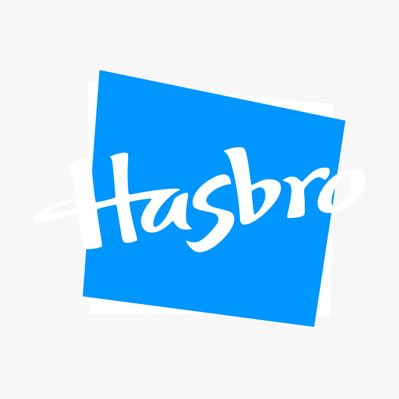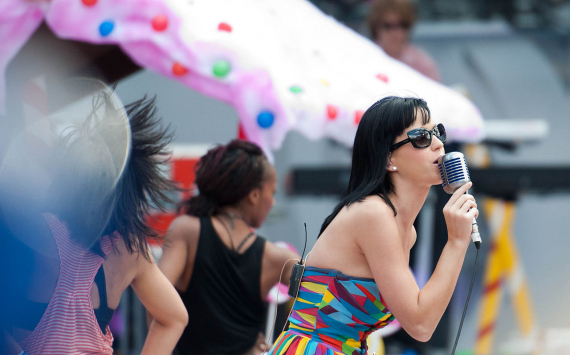Description
Hasbro, Inc. is an American multinational conglomerate with toy, board game, and media assets, headquartered in Pawtucket, Rhode Island. Hasbro owns the trademarks and products of Kenner, Parker Brothers, and Milton Bradley, among others. Hasbro is incorporated in Rhode Island, and as of August 2020 over 80% of its shares were held by large financial institutions.
Among its products are Transformers, G.I. Joe, Power Rangers, Rom the Space Knight, Micronauts, M.A.S.K., Monopoly, Furby, Nerf, Twister, and My Little Pony. The Hasbro brand also spawned TV shows to promote its products, such as Family Game Night on the Discovery Family network, a joint venture with Discovery, Inc.. As of end 2019, it is also the parent company of mass media and entertainment company Entertainment One.
History
Hassenfeld Brothers
Three Polish-Jewish brothers, Herman, Hillel, and Henry Hassenfeld founded Hassenfeld Brothers in Providence, Rhode Island, in 1923, a company selling textile remnants. Over the next two decades, the company expanded to produce pencil cases and school supplies. In 1926, Hassenfeld Brothers was incorporated; Hillel left for another textile business while Henry took charge of the corporation. They began making their own pencils when their pencil supplier began making pencil cases as well.
Hassenfeld Brothers produced modeling clay and then doctor and nurse kits as their first toys, and they became primarily a toy company by 1942. Hillel died in 1943 and Henry Hassenfeld became CEO, while his son Merrill became president. The company entered the plastic fields during World War II to support its toy line. Hassenfeld Brothers' first toy hit was Mr. Potato Head, which the company purchased from George Lerner in 1952. In 1954, the company became a Disney major licensee.
In 1960, Henry died and Merrill took over the parent company, and his older brother Harold ran the pencil-making business of Empire Pencil. Hassenfeld Brothers expanded to Canada with Hassenfeld Brothers (Canada) Ltd. in 1961. The company was approached in 1963 to license a toy based on The Lieutenant, which they turned down because they did not want to be tied to a possibly short-lived television series. Instead, Hassenfeld Brothers produced the G.I. Joe toy in 1964 which they termed an "action figure" in order to market it to boys who wouldn't want to play with dolls. In 1964 and 1965, G.I. Joe accounted for two-thirds of Hassenfeld's sales.
Hasbro Industries
The company had previously sold toys under the Hasbro trade name, and it shortened its name to Hasbro Industries in 1968 and sold a minor stake in the corporation to the public. The unpopular Vietnam War was at its height in 1969, so Hasbro redesigned GI Joe to be less militaristic and more adventure oriented. Its promotional efforts included the catchphrase "Boy Oh Boy! It's A Hasbro Toy!" in television commercials and print ads. Also in 1969, Hasbro bought Burt Claster Enterprises which produced "Romper Room" and had just begun a Romper Room toy line. A month-long Teamsters strike and Far Eastern supplier troubles caused the company to post a $1 million loss for the year.
In 1970, Hasbro began a plan of diversification and opened the Romper Room Nursery School franchise chain to cash in on President Richard M. Nixon's Family Assistance Plan which subsidized day care for working mothers. By 1975, the company had ended the nursery chain. Hasbro also entered the cookware field with the Galloping Gourmet line based on a television cooking show.
Two new 1970s toys were public relations disasters. One of the toys was named Javelin Darts which were similar to the ancient Roman plumbata. On December 19, 1988, the Consumer Product Safety Commission banned lawn darts from sale in the United States due to their hazards as a flying projectile with a sharp metal point causing multiple deaths. The other toy was named The Hypo-Squirt, a hypodermic needle-shaped water gun tagged by the press as a "junior junkie" kit. Both were recalled. Romper Room and its toy line had continued success, although Action for Children's Television citizens group considered the program to be an advertising channel for toys.
Merrill Hassenfeld took over as CEO in 1974, and his son Stephen D. Hassenfeld became president. The company became profitable once again but had mixed results due to cash flow problems from increasing the number of toys in the line to offset G.I. Joe's declining sales. Hasbro ended the G.I. Joe line in 1975 because of the rising prices of plastic and crude oil. In 1977, Hasbro's losses were $2.5 million, and the company held a large debt load. That same year, Hasbro acquired licensing rights to Peanuts cartoon characters. With the financial situation poor, Hasbro's bankers made the company temporarily stop dividend payments in early 1979. The toy division's losses increased Harold Hassenfeld's resentment regarding the company's treatment of the Empire Pencil subsidiary as Empire received lower levels of capital spending relative to profits than did the toy division.
With Merrill's death in 1979, Harold did not recognize Stephen's authority as the successor to the chairman and CEO position. As a solution, Hasbro spun off Empire Pencil in 1980, which was the nation's largest pencil maker, with Harold trading his Hasbro shares for those of Empire. Stephen then became both the CEO and chairman of the board. Between 1978 and 1981, Stephen reduced the Hasbro product line by one-third and its new products by one-half. Hasbro focused on simple, low cost, longer life-cycle toys like Mr. Potato Head. Hasbro thus stayed out of the electronic games field which went bust in the early 1980s.
In 1982, Hasbro revived its G.I. Joe line with the help of Marvel Comics, as an anti-terrorist commando based on current events. The company launched the successful Transformers toy line along with a children's animated TV series two years later. With the toys and TV series being popular, Stephen Hassenfeld posed with the toys for a People magazine cover photo.
In 1982, Hasbro produced the successful toy franchise My Little Pony. In 1983, they purchased GLENCO Infant Items, a manufacturer of infant products and the world's largest bib producer, and Knickerbocker Toy Company, a struggling Warner Communications subsidiary. Hasbro paid 37% of its stock to Warner, which was paid into Hasbro's executive-controlled voting trust, and also received a cash infusion. In 1984, Alan G. Hassenfeld took over as president from his brother Stephen, who continued as CEO and chairman. That same year, the company was the nation's sixth best-selling toymaker, and then acquired the Milton Bradley Company, which was the nation's fifth best-selling toymaker. This brought The Game of Life, Twister, Easy Money, and Playskool into the Hasbro fold and transformed Hasbro into Hasbro Bradley. Stephen Hassenfeld became the merged company's president and CEO, with Milton Bradley chief James Shea Jr. taking the chairman position. However, the executives clashed and Shea left after a few months, and Stephen and Alan returned to their previous positions.
2018–present
In February 2018, Saban Brands appointed Hasbro as the global master toy licensee for Power Rangers with a future option to purchase the franchise. On May 1, 2018, Hasbro agreed to purchase Power Rangers and other entertainment assets from Saban Brands for US$522 million in cash and stock with the licensing fee already paid with credit. The sale, which also included My Pet Monster, Popples, Julius Jr., Luna Petunia, Treehouse Detectives and additional properties, was expected to close in the second quarter.
In October 2018, the company announced plans to cut jobs amounting to less than 10% of its 5,000-plus global workforce in response to changes in how consumers buy toys.
In 2018, Hasbro signed a number of licensing agreements for hospitality deals based on Hasbro brands. On May 1, 2018, the Monopoly Mansion hotel agreement was announced by Hasbro, with M101 Holdings overseeing construction and M101's Sirocco Group assigned to manage the hotel when it opened in 2019. Hasbro granted Kingsmen Creatives a license to build a chain of NERF Action Xperience family entertainment centers, with the first to be opened in Singapore in fall/winter 2019. In November, the company issued a license for family entertainment centers to Kilburn Live, who were to launch a new division for the centers. That December, the company granted a license for theme parks to Imagine Resorts and Hotels, co-founded by Bruce Neviaser. Neviaser had previously co-founded Great Lakes Companies, which launched Great Wolf Resorts indoor waterpark resorts. On December 18, 2019, Hasbro and West Edmonton Mall announced that Galaxyland would get a makeover, with rides being redone and renamed to Hasbro properties. Construction was begun later that month and scheduled to wrap up in late 2020.
On August 22, 2019, Hasbro announced its purchase of Entertainment One for about US$4 billion. The deal was completed on December 30, 2019.
On October 24, 2019, Hasbro announced the closing of Backflip Studios, while its Wizards of the Coast subsidiary purchased Tuque Games in October.
In February 2020, Hasbro announced that Campbell Arnott's former CMO David McNeil had joined the company as the managing director for Pacific operations.
In September 2020, Renegade Game Studios announced they had acquired licensing for creating tabletop games for multiple Hasbro brands. Several of the games would be using the 5E role-playing system owned by Hasbro's subsidiary Wizards of the Coast.
In February 2021, during the 2021 Investor Event, Hasbro announced a company reorganization with three divisions: Consumer Products, Entertainment, and Wizards & Digital. The Wall Street Journal reported that "Hasbro's net revenue fell 8% last year to $5.47 billion, due in part to retail shutdowns related to Covid-19," however, its Wizards of the Coast subsidiary "posted revenue of $816 million last year, up 24% from 2019, fueled by what Hasbro says were record years for" Dungeons & Dragons and Magic: The Gathering. ICv2 reported, "the WotC and Digital Gaming segment is over $112 million more than the operating profit for Hasbro's entire consumer products segment" and that "Wizards of the Coast on its own is also more profitable than Hasbro's consumer products segment. From the outside, Hasbro looks like a toy company, but with these numbers, it's revealed to be a geek game company with toy and entertainment divisions".






















